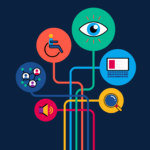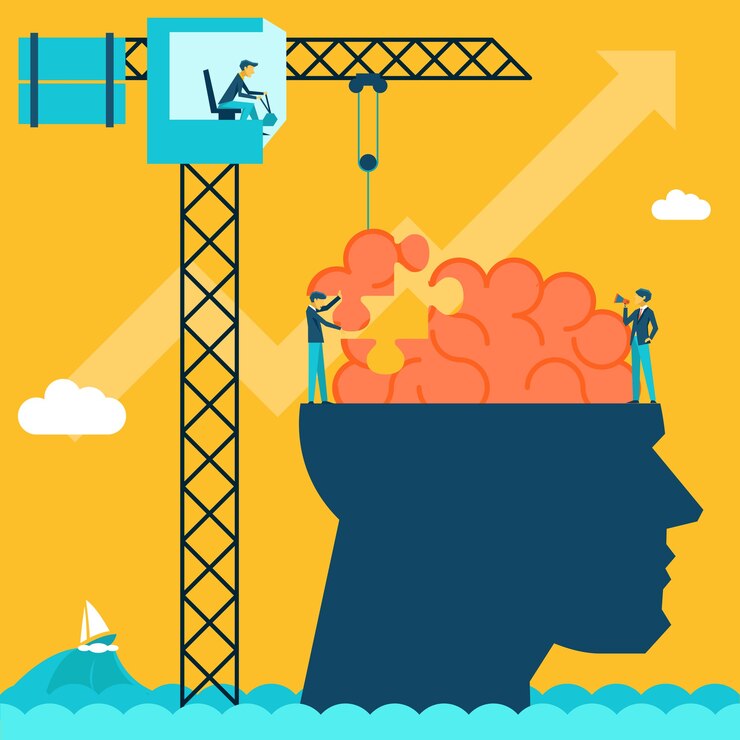Memory is an essential part of our daily lives, and a strong memory can greatly improve our productivity, learning, and overall well-being. Whether you’re a student looking to improve your academic performance, a professional seeking to enhance your work skills, or simply someone looking to stay mentally sharp.
improving your memory
improving your memory can have a significant impact on your life. In this article, we’ll discuss some effective tips and techniques to help you improve your memory.
Get Enough Sleep:
Sleep plays a crucial role in memory consolidation. During sleep, our brains process and strengthen memories, making them easier to recall in the future. Aim for 7-9 hours of sleep each night to help improve your memory.
Exercise Regularly:
Exercise has been shown to improve memory and cognitive function. Aerobic exercise, in particular, has been found to increase the growth of new brain cells in the hippocampus, a region of the brain responsible for memory. Aim for at least 30 minutes of moderate-intensity exercise per day.
Reduce Stress:
Chronic stress can negatively impact memory and cognitive function. Practice stress-reducing techniques like meditation, yoga, or deep breathing to help manage stress levels.
Eat a Healthy Diet:
A healthy diet rich in fruits, vegetables, and omega-3 fatty acids can help support brain health. Include foods like berries, nuts, and leafy greens, which are high in antioxidants and other nutrients that support cognitive function.
Stay Mentally Active:
Engage in mentally stimulating activities, such as reading, puzzles, or learning a new skill, to keep the brain active and challenged.
Use Mnemonic Devices:
Mnemonic devices are techniques that help encode information in a memorable way. Acronyms, rhymes, and mind maps are all effective mnemonic devices that can help improve memory.
Repeat and Rehearse:
Repeat new information out loud or to yourself, and rehearse it at intervals to help solidify it in memory.
Get Organized:
Use tools like calendars, to-do lists, and reminders to help keep track of information and reduce mental clutter.
Practice Mindfulness
Mindfulness practices like meditation and deep breathing can help improve focus and attention, which can in turn improve memory.
Get Professional Help
If you’re concerned about your memory or are experiencing significant memory problems, consult with a healthcare professional for advice and support.
Natural Ways To Improve Your Memory
Here are some natural ways to improve memory:
1. Exercise regularly:
Exercise has been shown to improve memory and cognitive function. Aerobic exercise, in particular, has been found to increase the growth of new brain cells in the hippocampus, a region of the brain responsible for memory.
2. Get enough sleep:
Sleep plays an essential role in memory consolidation. During sleep, the brain processes and consolidates memories, so it’s important to get enough sleep each night.
3. Reduce stress:
Chronic stress can negatively impact memory and cognitive function. Practice stress-reducing techniques like meditation, yoga, or deep breathing to help manage stress levels.
4. Eat a healthy diet:
A healthy diet rich in fruits, vegetables, and omega-3 fatty acids can help support brain health. Include foods like berries, nuts, and leafy greens, which are high in antioxidants and other nutrients that support cognitive function.
5. Stay mentally active:
Engage in mentally stimulating activities, such as reading, puzzles, or learning a new skill, to keep the brain active and challenged.
6. Use mnemonic devices:
Techniques like acronyms, rhymes, and mind maps can help encode information in a memorable way.
7. Repeat and rehearse:
Repeat new information out loud or to yourself, and rehearse it at intervals to help solidify it in memory.
8. Get organized:
Use tools like calendars, to-do lists, and reminders to help keep track of information and reduce mental clutter.
9. Practice mindfulness:
Mindfulness practices like meditation and deep breathing can help improve focus and attention, which can in turn improve memory.
10. Get professional help:
If you’re concerned about your memory or are experiencing significant memory problems, consult with a healthcare professional for advice and support.
Everyone’s memory is different
It’s normal to forget things from time to time. However, by incorporating these natural methods into your daily routine, you can potentially improve your memory and overall brain health.
Exercises To Improve Memory
Here are some exercises that can help improve memory:
1. Brain teasers and puzzles:
Engage in brain teasers, crosswords, Sudoku, and other puzzles to challenge your brain and improve memory.
2. Memory games:
Play games that require memory recall, such as memory matching games, word searches, or memory tests.
3. Word games:
Play word games like Scrabble, Boggle, or word searches to improve memory and vocabulary.
4. Mnemonic devices:
Use mnemonic devices like acronyms, rhymes, or mind maps to encode information in a memorable way.
5. Visualization exercises:
Practice visualization exercises to improve memory. For example, visualize a familiar place, such as your childhood home, in detail.
6. Working memory exercises:
Engage in exercises that challenge working memory, such as remembering a list of items or a sequence of numbers.
7. Physical exercise:
Engage in regular physical exercise, which has been shown to improve memory and cognitive function.
8. Yoga and meditation:
Practice mindfulness exercises like yoga and meditation to improve focus and attention, which can in turn improve memory.
9. Sensory exercises:
Engage in sensory exercises, such as identifying different smells, tastes, or sounds, to improve sensory memory.
10. Learning a new skill:
Learning a new skill, such as a new language or musical instrument, can challenge the brain and improve memory.
Consult A Healthcare Professional
It’s essential to consult with a healthcare professional before starting any new exercise program, especially if you have any underlying medical conditions. They can help you determine the best exercises for your individual needs and abilities.
Memory Improvement & Mnemonic Devices
Several mnemonic devices are effective for memory improvement. Here are some popular ones:
1. Acronyms:
Create an acronym from the first letter of each item you want to remember. For example, the acronym “ROY G BIV” can help you remember the colors of the rainbow (Red, Orange, Yellow, Green, Blue, Indigo, Violet).
3. Acrostics:
Create a sentence or phrase where the first letter of each word corresponds to the information you want to remember. For example, the sentence “Every Good Boy Does Fine” can help you remember the musical notes on the lines of the treble clef staff (E, G, B, D, F).
3. Rhymes:
Use rhyming words to help you remember information. For example, the rhyme “Thirty days hath September, April, June, and November” can help you remember the months with 30 days.
4. Mind maps:
Create a visual map of information, using branches or bubbles to connect related ideas. Mind maps can help you organize and remember information visually.
5. Association:
Associate new information with something you already know or find meaningful. For example, when introduced to a new person, associate their face with someone you already know with a similar face, or create a story that connects the new person’s name with something memorable.
6. Chunking:
Break down information into smaller, more manageable chunks. For example, phone numbers are typically broken down into smaller chunks of numbers to make them easier to remember.
7. Loci (memory palace):
Visualize a familiar place, such as your childhood home, and associate the information you want to remember with specific locations in that place. When you want to recall the information, visualize yourself walking through the familiar place and retrieve the information associated with each location.
8. Peg system:
Associate items you want to remember with a specific object or “peg.” For example, you can use the peg system to remember a list of items by associating each item with a specific object or location.
9. Storytelling:
Create a story that incorporates the information you want to remember. The more absurd or memorable the story, the better it will stick in your memory.
10. Songs and jingles:
Use songs or jingles to help you remember information. Music can be an effective mnemonic device because it can create strong associations in your memory.
key To Using Mnemonic Devices
Remember, the key to using mnemonic devices effectively is to create associations that are meaningful and memorable to you. The more personalized and creative your mnemonic devices, the better they will work for your memory.






















Pingback: Unraveling the Complexities of Human Memory Functions - POST BLOGS